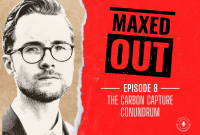Support strong Canadian climate journalism for 2025
The federal government announced a collaborative modern treaty policy on Tuesday at the Land Claims Agreement Coalition’s annual conference.
The Modern Treaties: Honouring our Past; Building our Future conference runs in Ottawa once every three years and brings together the approximately two dozen First Nations who have signed land claim agreements, otherwise known as “modern treaties.”
The modern treaty implementation policy was co-developed with First Nations, Inuit and Métis modern treaty partners throughout the summer and fall of 2022, according to a federal government news release.
“The policy will support the full, effective, and timely implementation of all current and future modern treaties in Canada, with the specific goal of advancing a systemic shift in institutional culture,” it reads.
The modern treaty process is one way Indigenous nations can leave the Indian Act.
At the conference, Indigenous-Crown Relations Minister Marc Miller gave a speech on the need for bureaucratic “muscle memory.”

Miller spoke about not putting the onus of “re-educating” civil servants on modern treaty organizations because specific knowledge of treaty obligations wasn’t ever institutionalized through departments.
“Speaking on behalf of the government of Canada … I’m very hopeful about this,” he told the conference.
In the policy, modern treaties are referred to as “living documents” that are capable of evolving over time. It states that there may be circumstances where modern treaty organizations can request amendments more reflective of reconciliation.
However, it’s unclear how that process might operate. In the policy, Canada and Indigenous modern treaty partners will co-develop an oversight mechanism to hold Ottawa to account to live up to their treaty obligations.
In the past, Indigenous nations have had to sue the federal government to add provisions to agreements on language rights or Aboriginal rights and titles.
Miller uses the example of the Inuit suing Ottawa for blocking language rights and whether language rights were constitutionally guaranteed in the modern treaty signed in 1990, according to Nunatsiaq News.
“They shouldn't have to sue us to get to somewhere where we should have been in the first place,” Miller said.
It’s a common story, however.

The first modern treaty was signed in 1975 by the Cree Nation in northern Quebec near James Bay.
Thierry Rodon is a professor of political science at Laval University and the Interuniversity Centre for Aboriginal Studies and Research. Rodon has also worked with Indigenous communities on their treaty negotiations.
Rodon calls the 1975 treaty “a fairly bad treaty,” negotiated in a couple of weeks, and with it came an “extinction of Aboriginal rights, everything,” Rodon said in an interview.
To gain influence over their treaty, the Cree Nation brought the government to court repeatedly and was finally able to settle. The legal battle eventually led to the “Paix des Braves,” which gave the Cree self-government, revenue sharing and joint management of resource development on their territories, Rodon explained.
“Even a bad treaty, you can make it a very good treaty,” he added.
But critics like Russell Diabo, a First Nations policy analyst, worry the modern treaty process will lead to a “municipalization” of First Nations that will include the taxation of community members on reserves and the ability to buy and sell properties on reserves, according to a presentation Diabo gave to Saddle Lake Cree Nation.
Miller calls municipalization an “unfair characteristic,” but agrees the government didn’t do itself any favours by imposing a requirement on modern treaty partners to tax their own people, which he says Ottawa has since phased out.
“I think you're here with us because you took a leap of faith in Canada and that's something that shouldn't be punished … by any stretch of the imagination,” Miller told the modern treaty conference.
Matteo Cimellaro / Canada’s National Observer / Local Journalism






Comments
Is this process consistent with the ten “Principles Respecting the Government of Canada’s Relationship with Indigenous Peoples”? I am not optimistic from what I have seen of the Crown’s dishonourable behaviour in the past.